Everything’s Not Right with the SACB

Introduction
The Student Academic and Counselling Board, or the SACB, is the student body that is responsible for maintaining an academic discourse in the campus and handling issues related to academics, and is often the first point of contact between the Dean (A) and the students.
The SACB was formed after rebooting the erstwhile Student Academic Council (SAC) that was dissolved by the Students’ Parliament on account of observed inefficacy. The SAC had a far larger number of members than the current SACB.
Members
According to the SAC Restructuring Bill, 2015 approved by the Parliament, there are five members of the SACB. However, as of the publishing of this article, only three members’ names are public. These are Anirudh Dahiya, Ekansh Purohit and Sabuj Chattopadhyay. When contacted back in January, the SACB promised that the student community would be informed about some additional members soon. However, the same has not yet happened.
As can be observed, the SACB may be below its required and expected strength. The reason for this, apart from mere laziness on the part of the current members, is that there is no “age of retirement”, so to speak, for the members of the SACB. While for single degree students this may not be a problem, it was observed that dual degree students ended up holding their position(s) within the SACB much beyond their initial interest would allow them to. This was seen when, in the whole of the Monsoon 2017 semester, there were two members, Arjit Srivastava and Rohan Bhatial, occupying space within the SACB without even being present on the campus (which surprisingly isn’t a requirement). Even among the current members, we see Sabuj who, while being available on the campus, does not involve himself in SACB work and has long overstayed his usefulness.
The SACB must strongly deal internally with non performing members. They must also recruit members from the newer batches, which is lacking at this point in time.
Work
Regular Responsibilities
The help cells, which involves student volunteers helping students of the first year academically, it was observed, are running satisfactorily on the part of the SACB. However, student interest remains a problem.
Student counselling committee, is a committee that was formed by an initiative of the Students’ Parliament 2013-14. Such a committee, is however, currently non existent, even though its coordination is mentioned as one of the functions of the SACB in its own bill.
Academic feedback panel, is a panel that is again, currently non functional and sorely missed at the end of every semester. There was a trial for collecting TA feedback via moodle in the Spring 2016 semester, which was discontinued in the succeeding semester for unknown reasons. The SACB, in addition to easing feedback collection methods, must also ensure that the administration takes the given feedback seriously. Currently, there is a not-unfounded sentiment of apathy with regards to the feedback forms in some quarters of the student community, since there has never been anything concrete (or even anything flimsy) to see gained from the feedback forms.
Lab tours, as promised by the SACB, are awaited for this semester. They are usually done towards the end of the semester, right before 2nd year students select their honours’ advisors.
Episodic Responsibilities
These are the responsibilities that may arise due to an issue being raised by the student community.
Dual degree statistics were promised by Prof. Vasudev Varma, Dean (R), in an open meeting held in the Monsoon 2016 semester. This was a meeting attended by more than 200 concerned dual degree students in H-105 in response to an email thread started by Arpit Merchant with regards to the review of his submitted thesis. While the minutes of the meeting were noted down by the members of the then SACB, they were not made public and promises were not satisfactorily followed up with the Dean.
First week attendance for the elective courses, as most students may know, became a contentious issue when it was announced at the beginning of the Spring 2017 semester that it would be included in the final attendance. This move made little sense because students frequently added or dropped courses, depending on the first week’s classes, or based on which courses they could manage to get. The move to include the first week’s attendance strongly restricted a student’s freedom to opt for courses of their choice, and was more so implemented without a clear policy which till date results in confusion with respect to how the first week attendance stands to be recorded. This issue was raised with both Prof. Jayanthi Sivaswamy, the Dean (A), and the SACB, to no avail.
When requested for clarification, the SACB responded by sending an outdated attendance policy, dated July 2016, which excluded the first week attendance in the calculation of the final attendance.
Student initiated courses was an idea raised by a student, Anurag Ghosh, based on some innovative courses in institutes around the world. His proposal called for allowing a pass/fail course to be taught by a motivated student. This, if implemented, would give students both, invaluable experience to not just teach parts of a course, but also design a course in its entirety and the opportunity for others to opt for innovative courses that they otherwise would not have had the chance to pick. The then SACB forwarded the proposal to the Dean (A), but it was not followed up with and ended up forgotten. Hopefully the current SACB can pick this up again. To know more about this proposal, you can read it here.
2018 – A Crucial Year
IIIT has a policy to revise its curriculum every 10 years. Founded in 1998, 2018 marks 20 years, and hence, the point of its second major academic curriculum revision.
This would have been a great opportunity for the new members of the SACB to ensure that student inputs and experiences are taken into account by the administration in order to prepare the curriculum for the programmes for future students. However, this opportunity was entirely lost by the SACB. Not only the student community at large, the SACB itself was not sufficiently involved in this process. This is a huge failure on the part of the administration as well as the SACB, for not pushing harder to involve themselves in the process. Being persistent is a requirement for any student body that interacts directly with the faculty, and the SACB has time and again failed to display it.
Documentation
I contacted the SACB via email in order to write this article. They do not maintain a single webpage on the intranet that can be visited in order to view simple documentation. Being in a CS institute, where even a now defunct Campus Green Club has a web page of its own, the SACB has been apathetic in making important documents public. This has resulted in wasted effort as the current members of the SACB are entirely unaware of the work pending or work done by the former members. A request for an update on past work was met by a response stating that the now-graduated members would be contacted in order to gain more information.
The SAC Restructuring document, on the basis of which SACB is formed, places great emphasis on documentation, and even divides the documents on the basis of how accessible they should be (public, limited access, confidential). The SACB lacks even minimal documentation of their work, let alone various categories and subcategories of documentation. Since the important restructuring document itself is unavailable anywhere on the intranet, please find it here.
Last Words
The SACB needs to pull its socks up and perform the duties that they owe the student community. Being an autonomous student body, their accountability lies directly with the student community and hence their first step in this regard should be to make their past work and their agenda for the future, public. Without this, the SACB treads a dangerous road, risking itself being reduced to play the role of a stooge for the Dean (A).

 Cleaning up the Mess?
Cleaning up the Mess?  The Mess-y Situation
The Mess-y Situation 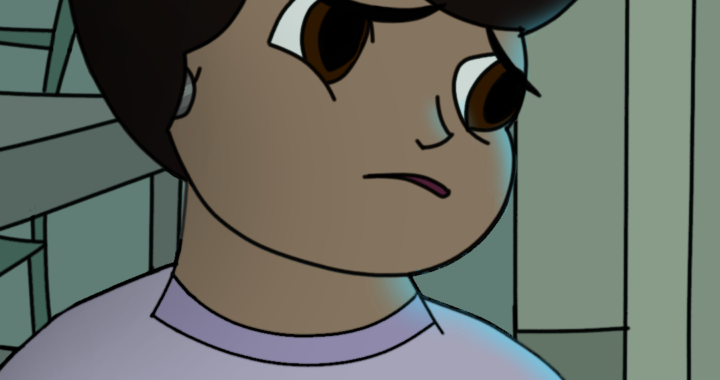 Qu’ils mangent de la grenouille! (Let Them Eat Frogs!)
Qu’ils mangent de la grenouille! (Let Them Eat Frogs!) 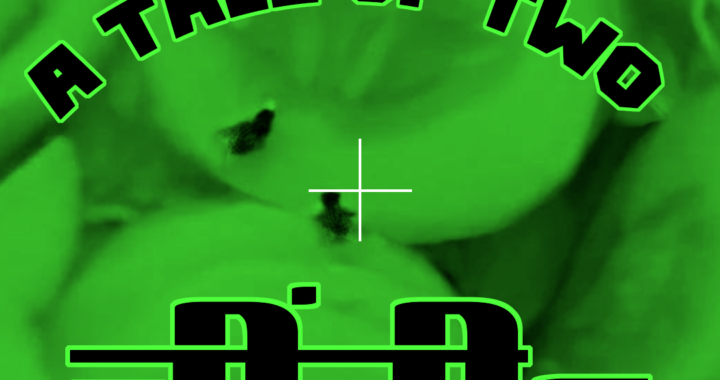 Tale of Two Cheenties
Tale of Two Cheenties 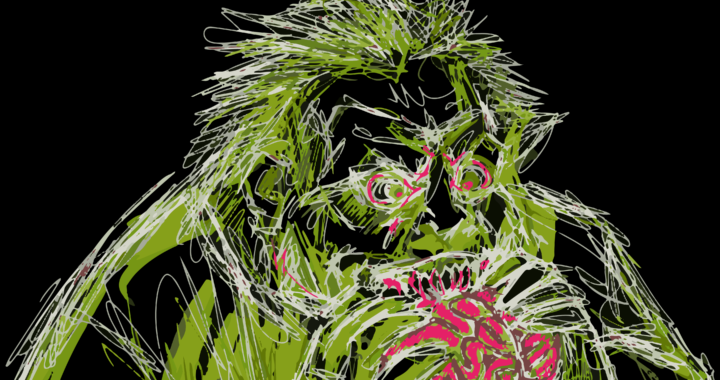 Peace of mind.
Peace of mind.  Boats and Valorant
Boats and Valorant 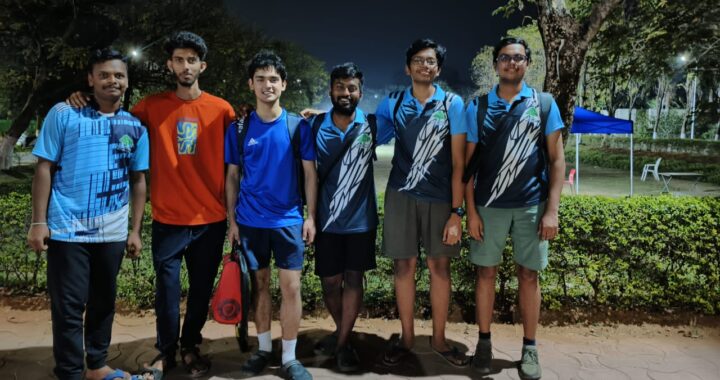 A perspective on sports in IIIT
A perspective on sports in IIIT 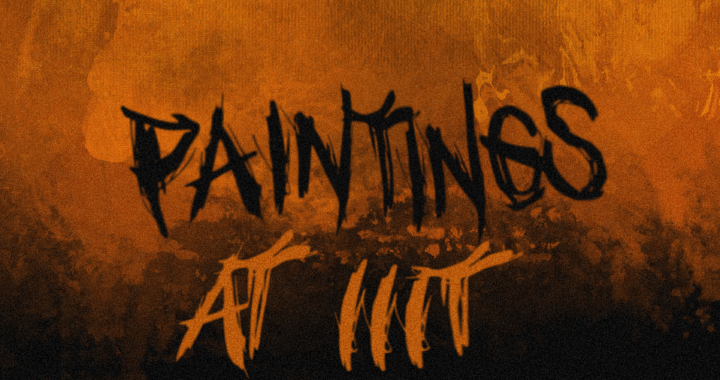 Paintings of IIIT
Paintings of IIIT 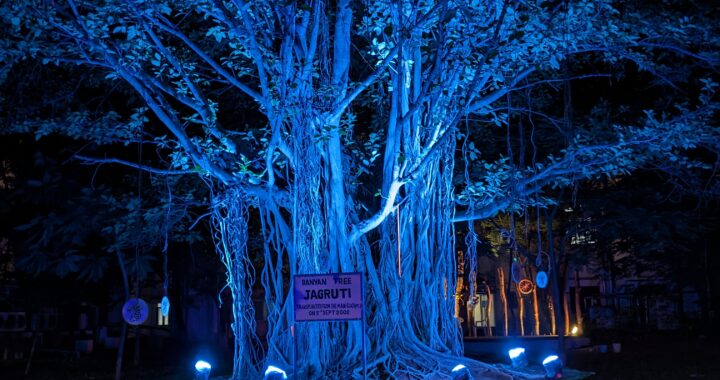 The Tale of Jagruti
The Tale of Jagruti
1 thought on “Everything’s Not Right with the SACB”
Comments are closed.